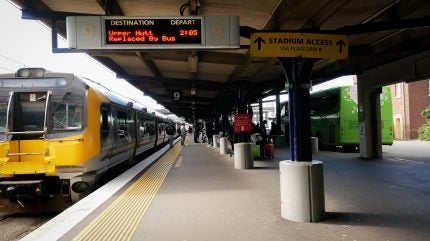
The New Zealand government has announced a NZ$137.2m ($80.29m) investment in Wellington’s metro rail network, aimed at upgrading its aging substations and enhancing the efficiency of the city’s train services.
New Zealand transport minister Simeon Brown announced the funding, addressing the overdue modernisation of substations, some of which are between 60 and 90 years old.
The upgrades are expected to benefit the city’s metro rail network, which is expected to witness a growth in commuter travel, and bolster the network’s electrical capacity.
The investment will also help add five new substations to the network.
These enhancements are crucial for powering new trains for the Wairarapa and Manawatū lines and for supporting more frequent services, with timetables offering 15-minute intervals on existing routes, according to the minister.
The substation upgrades are part of an initiative to fortify the network against severe weather events, which can include storms, heavy rainfall, and high winds. This proactive approach to resilience is critical for maintaining service continuity in adverse conditions.
Furthermore, these upgrades complement additional investments from the Budget 2024, aimed at enhancing critical rail infrastructure throughout Wellington.
In June this year, the government set aside NZ$466m ($284m) for rail investments in its 2024 Budget.
This includes improvements to tracks, signals, bridges, retaining walls, culverts, train platforms, and urgent repairs to a seawall along Porirua Harbour.
The government’s commitment to upgrading critical transport infrastructure emphasises the prioritisation of the Lower North Island Rail Integrated Mobility (LNIRIM) project as a key public transport initiative.
Brown said: “Delivering reliable, effective, and efficient public transport is a top priority for our government.
“We are targeting investment towards projects that will improve service reliability, as we know this is key to enabling commuters in our main cities to choose public transport as a travel option and reduce congestion on our roads.”



